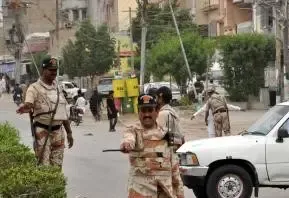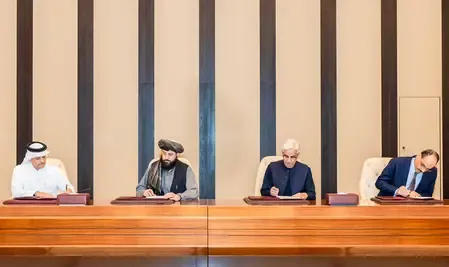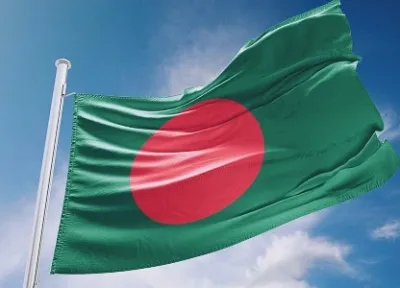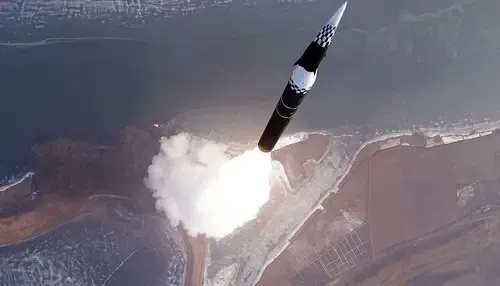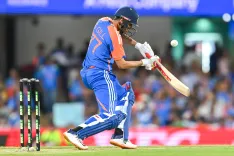Has Iran Appointed New Military Leaders After Israeli Airstrikes?
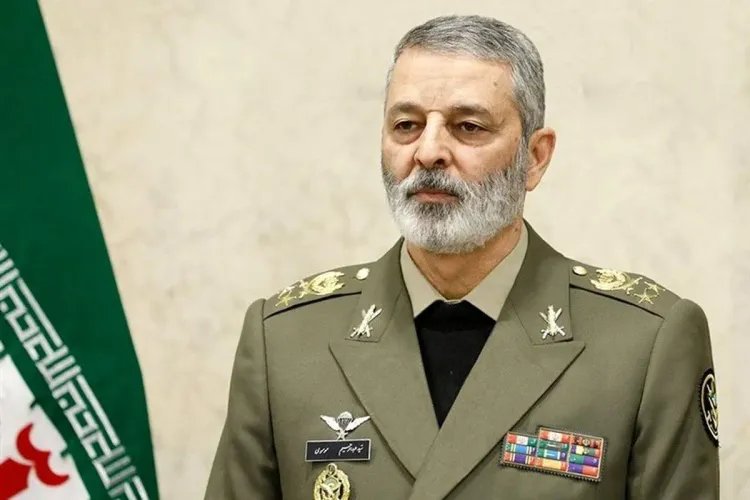
Synopsis
Key Takeaways
- New military appointments in Iran following Israeli airstrikes.
- Top Iranian commanders were killed in the strikes.
- Israeli airstrikes are seen as a significant escalation in regional conflict.
- Iran's response includes a vow of retaliation.
- The situation raises concerns about Iran's nuclear ambitions.
Tehran, June 13 (NationPress) - Following the tragic loss of significant security figures in Israeli airstrikes, Iran's Supreme Leader Ali Khamenei has appointed new military leaders, as reported by the state-run IRNA news agency.
The recent Israeli airstrikes, which took place early Friday, targeted Tehran and other cities, resulting in the deaths of notable commanders, including Chief of Staff of the Armed Forces Mohammad Bagheri, IRGC Commander Hossein Salami, and Gholam-Ali Rashid, head of the Khatam al-Anbiya Central Headquarters, according to Iranian media outlets.
In response, Khamenei has appointed Abdolrahim Mousavi as the new chief of staff of the armed forces, Mohammad Pakpour as the new commander of the IRGC, and Ali Shadmani to lead the Khatam al-Anbiya Central Headquarters, as stated by IRNA.
Prior to their new roles, Mousavi commanded the regular army, Pakpour led the IRGC's Ground Force, and Shadmani held the position of deputy coordinator at Khatam al-Anbiya.
The semi-official Tasnim news agency also reported that the Israeli strikes resulted in the deaths of six Iranian nuclear scientists, including Mohammad-Mehdi Tehranchi and Fereydoun Abbasi, along with an uncertain number of civilian casualties, as per Xinhua news agency.
Khamenei publicly condemned the attacks, asserting that Israel would incur severe punishment for this act, which he termed a crime against Iran.
Earlier, the Israel Defence Forces (IDF) claimed that they successfully eliminated three top Iranian military leaders during the airstrikes that affected multiple cities in the Islamic Republic.
“We can now confirm the elimination of the Chief of Staff of the Iranian Armed Forces, the Commander of the IRGC, and the Commander of Iran’s Emergency Command in these Israeli strikes carried out by more than 200 fighter jets. The world is a better place without these ruthless individuals,” the IDF stated in a post on X.
This incident escalates the ongoing tension between Israel and Iran, raising alarms about a potential widespread regional conflict.
While Iranian officials have not yet confirmed the deaths of these senior leaders, state media did confirm the demise of IRGC Commander Hossein Salami due to an Israeli airstrike.
IRIB, Iran's state broadcaster, reported that loud explosions were heard throughout Tehran and other cities during the early hours of Friday.
The Israeli strikes were characterized as a targeted military operation by officials and were acknowledged in a televised address by Prime Minister Benjamin Netanyahu, who stated that the mission was aimed at rolling back the Iranian threat to Israel's survival.
“This operation will continue until we successfully mitigate the threat of annihilation against us,” Netanyahu declared.
Defense Minister Israel Katz referred to the operation as a preemptive strike, declaring a special state of emergency across Israel to ensure national security preparedness.
This military action follows increasing concerns over Iran's nuclear ambitions.
Earlier this week, Iran's Supreme National Security Council warned that any assault on its territory would prompt immediate retaliation, including strikes on Israel’s nuclear installations, which Tehran claims to have identified through recent intelligence efforts.

